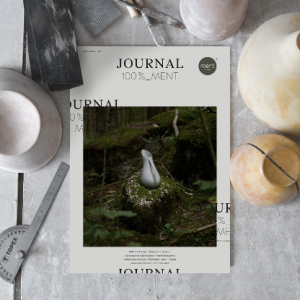Recommended treatment
porcelain
Porcelain is one of the strongest ceramic materials, but it can still break. If you drop a porcelain product on the floor, or it receives a hard blow when filling the dishwasher, for example, it can crack the material, just like glass. Large temperature differences between cold and hot, such as moving it from a hot oven to a cold bench, or if the product is cold and gets boiling water in it, this can also cause stress in the material and, in the worst case, cause cracks. Unfortunately, broken porcelain cannot be repaired. We do not recommend gluing a broken product.
If a porcelain product is left with water in it for a long period of time, you may find that condensation is forming on the underside of the product. To avoid this, we recommend gluing on small furniture knobs under vases to avoid this.
Stains on the glazed surfaces should go off in the wash, but stains of grease, coffee, tea, wine, etc. can put stains on the untreated surfaces if you do not wash it off immediately. If such stains do not go away, we recommend trying to remove stains with a "magic sponge", baking soda or a mild scouring cream. You can also try a fine sandpaper, but it is important that you do not sand on the glazed area.
All our porcelain products are dishwasher-safe, except for products that have mix of several materials, such as our teapot or amps. Here we recommend hand washing.
ceramics
Ceramics are not burned as high as porcelain, and are therefore not as strong either. We recommend hand washing of our ceramic products.
If a ceramic product is left with water in it for a long period of time, you may find that condensation is forming on the underside of the product. To avoid this, we recommend gluing on small furniture knobs under vases to avoid this.
If a ceramic product is hit hard, the material can crack, just like glass. Large temperature differences between cold and hot can also cause stress in the material and, in the worst case, cause cracks. Unfortunately, broken ceramics cannot be repaired. We do not recommend gluing a broken product.
tree
We recommend cleaning our wood products with a damp cloth. Untreated wood should not lie in water as this will cause the tree to swell.
wool
Wool is 100% renewable and therefore one of our most sustainable material resources. Wool has self-cleaning properties and does not need to be washed very often. Our wool blankets can be aired instead of washing. If you want to wash the wool blanket, we recommend hand washing at 30 degrees and you need to use detergent intended for wool.
cutlery from cutipol
All Cutipol cutlery is dishwasher safe. Minimize prolonged contact with dishwasher steam by removing it as soon as the wash cycle is complete. Dry each item thoroughly with a soft, dry cloth. When washing Cutipol cutlery by hand, avoid using washing scrubs. After use, wash food residues as soon as possible with warm water and a neutral detergent.
Take extra care of the blades. Steel, which provides higher shear force and hardness, may have less resistance to oxidation. Make sure that the blades are washed immediately after use and dried well before putting them away in a dry place.
Due to the percentage of carbon in all the blades and the existence of copper in the coating of gold and rose gold, it is recommended not to use strong, chlorine-based or antiscale detergents, as they provide stains or rust.
Resin handles (resin). To make darker handles last longer and maintain a stronger hue, we suggest using a moisturizing lotion or a few drops of vegetable oil to saturate the color if it lightens over time. This applies to all models with a resin handle such as Goa, Noor, Ebony and Kube.

